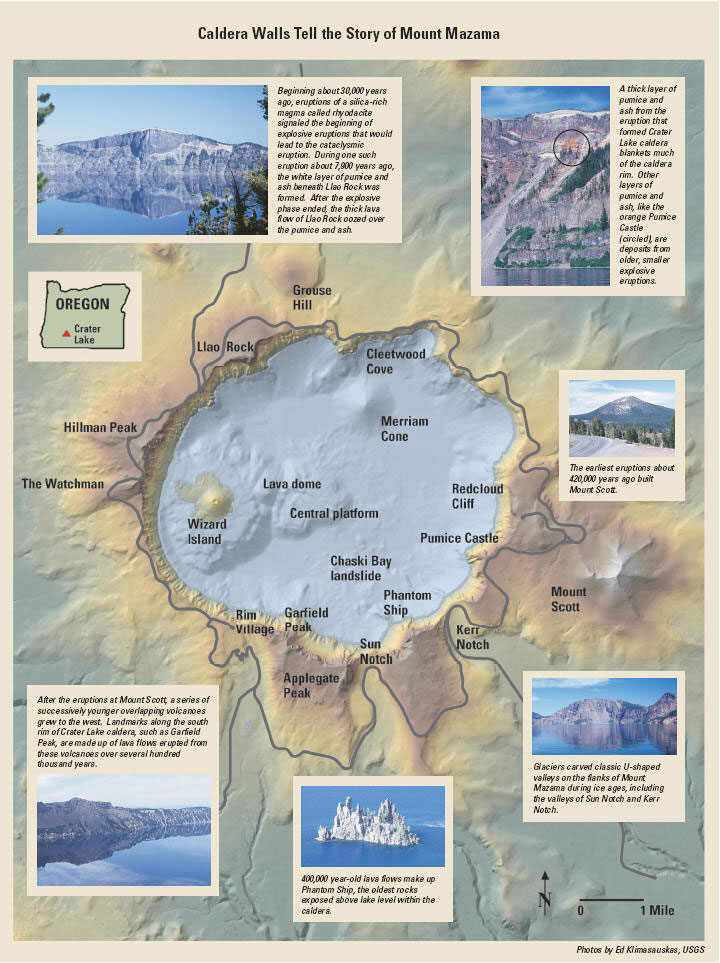Mount Mazama and Crater Lake: Growth and Destruction of a Cascade Volcano
U.S. Geological Survey and the National Park Service
USGS Fact Sheet 092-02, August 2002
Mount Mazama
Mount Mazama was formed over a period of nearly half a million years by a succession of overlapping volcanoes. The first eruptions about 420,000 years ago built Mount Scott, located just east of Crater Lake. Over the next several hundred thousand years, Mount Scott and other nearby volcanoes became extinct, while new volcanoes grew to the west. Layers of lava flows from these volcanoes are visible in the caldera walls and in landmarks along the south rim of Crater Lake, including Applegate and Garfield Peaks. During the growth of Mount Mazama, glaciers repeatedly carved out classic U-shaped valleys. Some were filled with lava from later eruptions, while others, such as Kerr Notch and Sun Notch, were not.
By about 30,000 years ago, Mount Mazama began to generate increasingly explosive eruptions that were followed by thick flows of silica-rich lava, an outward sign of the slow accumulation of a large volume of highly explosive magma deep beneath the volcano. Grouse Hill and Redcloud Cliff are thick lava flows erupted between 30,000 and25,000 years ago. Another such eruption about 7,900 years ago formed a white layer of pumice and ash and the thick lava flow of Llao Rock. Within 200 years of the eruption at Llao Rock, another thick lava flow erupted near present-day Cleetwood Cove. These eruptions reached a peak 7,700 years ago in the largest explosive eruption in the Cascades during the past 1 million years.
Other pages in this section


